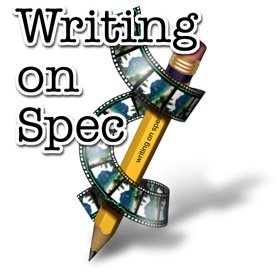Critique or Critic by K. Michael Bolk
Over my years in our writing group, we've made a point of discussing the qualities of a good critique and how best to help our fellow writers when commenting on their submitted work. The following article from K. Michael Bolk sums it up with a nice little story.
There is a point in our writing endeavors where we start to find out about improving our technique. We buy reference books, attend classes and begin to network. For me, this time of transition was monumental. Not only did I learn that verbs really do liven up a story, but I also found out about critiquing.
one of the most valuable ways we can improve our writing is by receiving input from others. Hence, we offer our work to be critiqued.
My first experience with a critique group was over twenty years ago, but what I learned during this initial exposure stays with me today. It was a unique experience, so let me tell you what happened.
I was seated in an old, musty classroom, when my Drill Sergeant began passing out booklets. "This is a copy of the newest Air Defense Artillery Manual, " he barked while rhythmically placing the books on each desk. "You will review this document, evaluate its contents and provide viable input for possible revisions. The words are simple, so even pea-brains like you can understand them."
Since we all knew what 'traverse target vectoring' was, no problem, right? Wrong. After the first chapter was read, some poor private made the mistake of commenting that the manual started off incorrectly and had to be completely rewritten. His critique was met by the full facial screams of the Drill Sergeant.
"Private, the Army has spent thousands of dollars and man hours to produce this document. Do you get my message, Soldier?"
Quivering with fear, the private nodded his acknowledgement and sat down.
The Drill Sergeant began pacing the room, then placed his hand behind his back. "Obviously some of you have already forgotten what I told you. You will evaluate its content, not judge. Do I make myself clear?"
In the tradition of the military, we all shouted in unison, "Yes, Drill Sergeant."
Now, I like to think of myself as an intelligent individual. The smarter response to this situation might have been to sit back quietly as we moved to the second chapter, but he had asked for my evaluation, and that first chapter was really bad. Of course, I couldn't come out and say it. I had already seen the response to that suggestion. So I had to think of what the chapter needed, and how I could present it to the Drill Sergeant. I figured that in this situation it would be helpful to use my best military tact (if you don't know what military tact is, it's the ability to tell someone to go to hell in such a way that they anxiously await the trip).
Taking a deep breath, I jumped to my feet and snapped to 'parade rest'. "Drill Sergeant." My voice echoed in the room.
He shot me a menacing stare. "Yes, Private Bolk?"
"I have evaluated this chapter."
"Do you have a problem with it?" he scowled.
"Yes, Drill Sergeant," I shouted. "Although it is a well written technical manual, I believe if the second and fifth paragraphs were reversed, the flow of events would be more realistic. Also, it appears to me as if the author is attempting to show his advanced expertise with this piece of equipment by giving a complete description of the radar set when it would best be infused gradually in each section pertaining to the specific component. Additionally, the trailer maintenance is repetitious because it is included in another manual and does not pertain to the material at hand."
I quickly returned to my seat. My heart pounded furiously in my chest, awaiting the retaliation of the Drill Sergeant. I only hoped my recommendation would be evaluated in a positive way, and without retribution.
He folded his arms and began slowly nodding his head. Taking a deep breath he looked around the room. "That, gentleman, is a critique. Don't just tell me what's wrong. Tell me how to fix it easily, and without rewriting the entire book." A sinister smile crept over his face. "Keep in mind, this is my radar and only I can tell you about it. If I lose you, or you don't understand what I'm telling you, then I have not shown you my radar."
At that point I realized the difference between a critique and a critic. One provides input, where the other judges. Also, it is necessary to point out flaws to improve the story without trying to completely re-write it.
I found out that critiquing is an art performed in a positive manner. When I critique, I always compliment the work by mentioning a part that grabbed my interest. I try to make good recommendations, and back them up with reasons for the possible change. I always try to evaluate and recommend, rather than judge. After all, I'm a critiquer, not a critic.
Labels: Screenwriting

0 Comments:
Post a Comment
<< Home